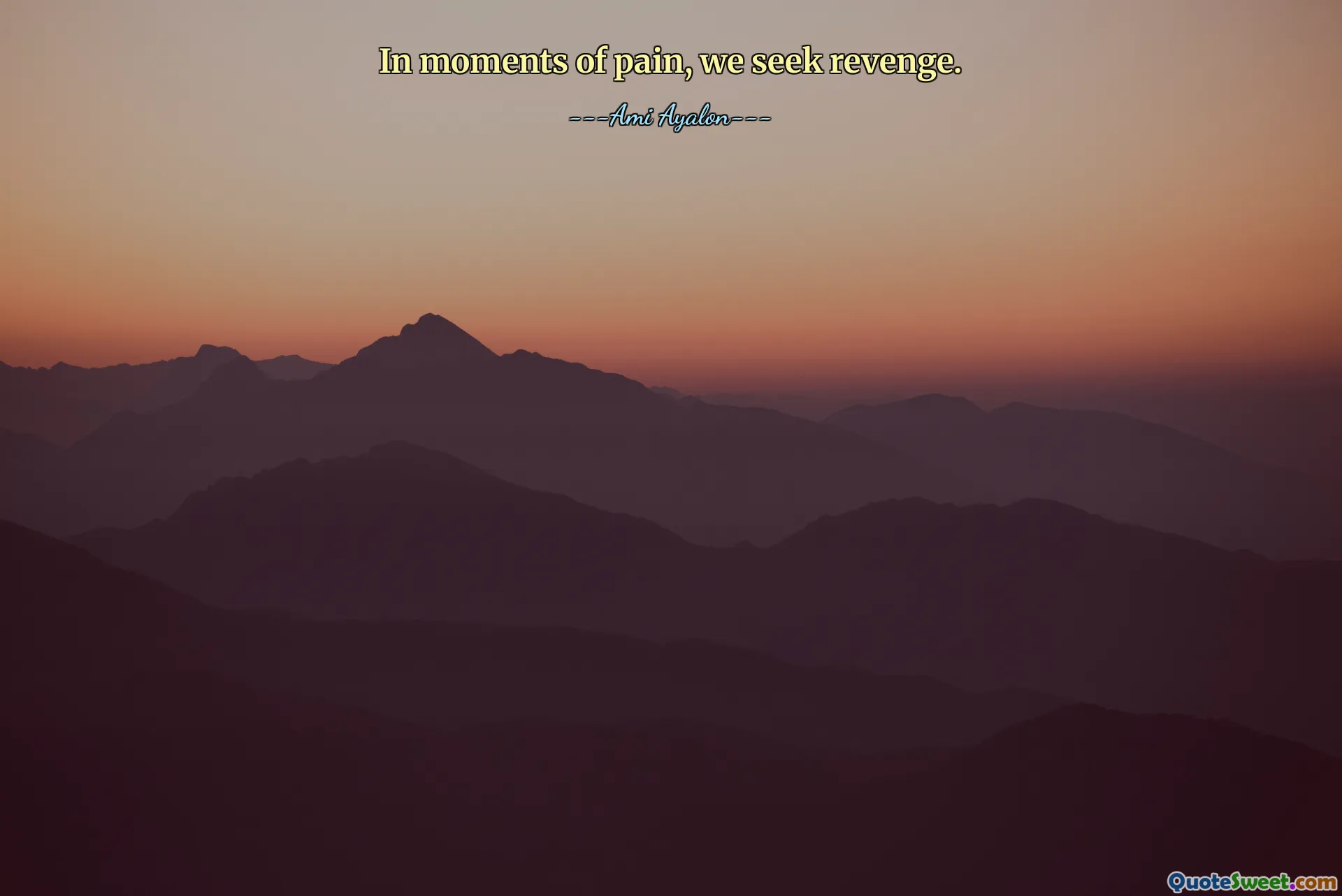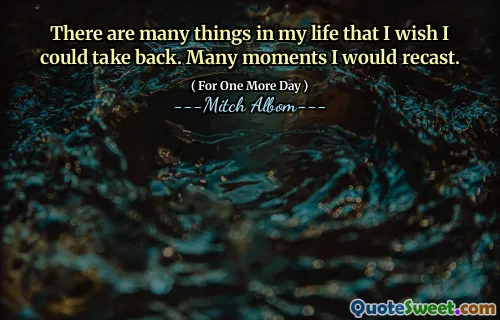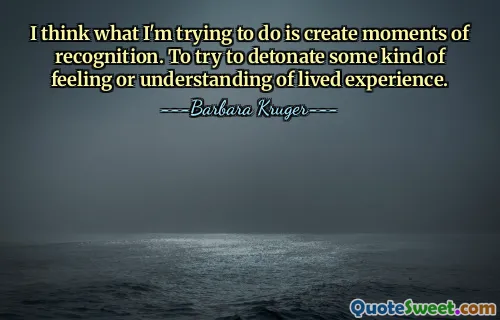
In moments of pain, we seek revenge.
The quote highlights a common human response to suffering and injustice: the desire for revenge. When faced with pain, whether emotional or physical, it is natural for individuals to feel anger and the impulse to retaliate. This reaction is deeply ingrained in human psychology; it can serve as a way to restore a sense of balance or justice in situations where one feels wronged. However, pursuing revenge often leads to a cycle of hostility and escalation, which can perpetuate suffering rather than resolve it. Reflecting on this, it's important to consider alternative paths towards healing and forgiveness. Forgiveness can transform pain into growth, breaking the cycle of revenge and fostering peace—for oneself and others. The pursuit of revenge might provide a momentary sense of satisfaction, yet it rarely results in genuine resolution or inner peace. Instead, it can deepen wounds, extend conflicts, and impede progress toward understanding and reconciliation. Recognizing the triggers that prompt revenge is crucial; embracing compassion and empathy can be powerful tools in overcoming the impulse. Cultivating self-awareness and emotional resilience helps in resisting impulsive reactions, enabling individuals to choose paths that lead to ultimately healing rather than further destruction. Human history is replete with cycles of revenge that have caused prolonged suffering for communities and nations alike. Breaking free from this cycle requires conscious effort and a commitment to higher ideals such as justice, mercy, and understanding. In this way, transforming pain into a catalyst for positive change becomes possible, turning a destructive impulse into an opportunity for growth and reconciliation ---Ami Ayalon---











